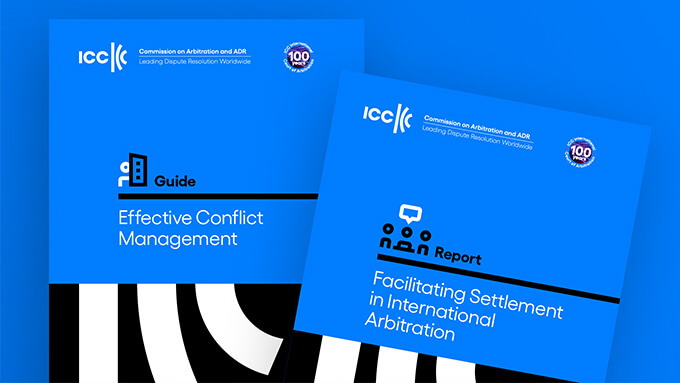The Effect of the Principle of Separability on Determination of the Law Applicable to Arbitration Agreements
Introduction
Due to the principle of autonomy / separability of an arbitration agreement from the underlying contract, the validity of the underlying contract and the arbitration agreement should be evaluated independent of each other[1]. However, it should be analyzed whether this autonomy effects the determination of the applicable law to both agreements. In other words, whether the principle of separability causes the laws that are applicable to the arbitration agreement and to underlying contract to be different[2].
This issue is particularly encountered when an arbitration clause is stipulated under the underlying contract. Under the international commercial agreements, the dispute resolution clause and the choice of law clause are stipulated together. At times, these two choices are regulated in the same sentence, sometimes in different sub-articles of the same article, and sometimes in subsequent articles. However, in such cases, it is unclear whether the choice of law refers also to the arbitration agreement. Consequently, it will be controversial whether the law determined to be applicable to the substance of the dispute should also be applied to the arbitration agreement.
Such issue may raise different problems. Firstly, it can be considered whether it is possible to determine the law applicable to the underlying contract and law applicable to the arbitration agreement to be different from each other. In other words, can the parties determine the law applicable to the arbitration agreement in addition to the applicable law to the underlying contract? Later, it should be considered whether it is possible for the law that is determined to be applicable to the underlying contract by the parties or arbitrators or state courts can also apply to the arbitration agreement. If such solution is impossible, should this law be determined separately on the basis that the law applicable to the arbitration agreement is undetermined?
Application of Law Applicable to the Underlying Contract and also to the Arbitration Agreement
It can be considered that the applicable law determined by the parties without making a distinction between the underlying contract and arbitration agreement is not determined only for the underlying contract, but also for the arbitration agreement. Indeed, it is reasonable for an arbitration agreement to be subjected to the law determined by the parties -to be applied to the underlying contract- instead of being subject to a law that is not “chosen” by the parties. As a matter of fact, it can be accepted as a strong indication that the law determined by the parties to be applied to the underlying contract is also determined by them to be applied to the arbitration agreement. Accordingly, the acknowledgement of the principle of separability as an irreplaceable principle, and the idea of the underlying contract and the arbitration agreement to be subject to different laws, are criticized. Within this scope, there are arbitral awards and court decisions where the arbitration agreement is held subject to the law determined by the parties to be applied to the underlying contract.
Determination of Applicable Law to the Arbitration Agreement Separately from the Underlying Contract
According to another point of view, one of the consequences of separability of arbitration agreement from the underlying contract is that the laws applicable to both agreements should be determined, separately. The principle of separability results in the arbitration agreement to be held subject to a law different from the law regulating the underlying contract. According to this view, the applicable law to these two agreements should be determined, separately, as the arbitration agreement and the underlying contract are separate from each other; if that the applicable law to the underlying contract is determined, the arbitration agreement, which is not a main or secondary obligation arising from the underlying contract, should not be subjected to the law applicable to the underlying contract.
Under this section, attention is drawn to two approaches. The first approach is the application of the law of the seat of arbitration to the arbitration agreement; the other one is the application of a state law, or international principles, directly to the arbitration agreement, such as is accepted in Swiss, Turkish and French laws, with some variation.
Application of the Law of the Seat of Arbitration to the Arbitration Agreement
In arbitral awards and court decisions which accept that different laws should be applied to the arbitration agreement and to underlying contracts, it is often seen that the validity of the arbitration agreement is determined according to the law of the seat of arbitration. There are different reasons for this approach. Firstly, according to the New York Convention, Art. V/1(a) and the Model Law, Art. 36/1, it is stated that the arbitration agreement is subject to the the law that the parties have determined or, failing any indication thereto, to the law of the country where the award was made. In addition, the most related law for the arbitration agreement is the law of the seat of arbitration. In some decisions, it is accepted that the parties implicitly determine the law applicable to the arbitration agreement through determining the seat of arbitration.
The application of the law of the seat of arbitration to the arbitration agreement is supported both in doctrine and in decisions. However, the seat of arbitration is not always determined by the parties. In practice, the seat of arbitration can be determined by arbitration institutions or arbitral tribunals. Considering such, the law of the seat of arbitration should not be applied to the arbitration agreement where the seat of arbitration is undetermined by the parties.
Application of the State Laws and International Principles to the Arbitration Agreement
In some state laws, it is accepted that their national laws or internationally accepted principles, such as the principle of good faith, should be applied to the arbitration agreement. For instance, Swiss, Spanish, Iranian and Turkish laws refer the arbitration agreement to their national laws, while in France, arbitration agreements are held to be subject to supranational principles, without making reference to any national laws.
Except for France, the laws of Switzerland, Spain, Iran and Turkey determine the applicable law to the arbitration agreement to be their national law. According to Art. 178/2 of the Swiss International Private Law, which regulates the applicable law to arbitration agreements, arbitration agreements are valid as per the law determined by the parties; if there is no indication thereto, the law applicable to the substance of the dispute, or Swiss law, will apply to the arbitration agreement. It is sufficient for the arbitration agreement to be valid as per any of these laws. Therefore, in the event of invalidity of the arbitration agreement under the law applicable to the underlying contract, it may be considered valid according to another law, as a reflection of the in favorem validatis approach of Swiss law.
Similarly, according to Spanish Arbitration Act Art. 9/6, the validity of an arbitration agreement is subject to the law determined by the parties, and if there is no such indication, to the law applicable to the substance of the dispute and, lastly, to Spanish law.
Under Turkish law, according to the Act on International Arbitration (“AIA”) Art. 4/3, the law applicable to an arbitration agreement is clearly distinguished from the law applicable to the merits of the dispute. As per this article, the arbitration agreement is subject to the law determined by the parties to be applied to the arbitration agreement or, if there is no such determination, Turkish law will apply. Hence, if the underlying contract is subject to a law other than Turkish law, and the law applicable to the arbitration agreement is not separately determined, the arbitration agreement will not be effected by the law applying the underlying contract, and its validity will be directly subject to Turkish law.
Likewise, AIA, Iranian Arbitration Act, Art. 33/1(b) regulates that the validity of an arbitration agreement is, firstly, subject to the law determined by the parties and, if there is no such determination, then Iranian law will directly apply to the arbitration agreement.
Conclusion
According to the principle of separability, the arbitration agreement and the underlying contract may be subject to different laws. However, if these two agreements are not clearly subject to different laws by the parties, applying two different laws on the basis of the principle of separability might contradict the will of the parties. In order to avoid this contradiction, in the event the law that is applicable to the underlying contract is determined by the parties, this law may apply to the arbitration agreement, as well. However, such solution cannot be accepted under Turkish law considering the clear provision of AIA, Art. 4/3.
[1] For separability of an arbitration agreement from the underlying contract, please see. Işık, Fatih, The Separability of an Arbitration Agreement from the Underlying Contract, Newsletter July, 2013, http://www.erdem-erdem.av.tr/publications/law-post/the-separability-of-an-arbitration-clause-from-the-underlying-contrat/ (Access date: 19 July 2017).
[2] For more information regarding the topics in this article, doctrine opinions and court decisions, please see Işık, Fatih, Milletlerarası Ticari Tahkimde Tahkim Anlaşması Yapma Yetkisi ve Bu Yetkiye Uygulanacak Hukuk (Authority to Conclude Arbitration Agreements and the Applicable Law in International Commercial Arbitration), On İki Levha, May, 2015, p. 83-97.
All rights of this article are reserved. This article may not be used, reproduced, copied, published, distributed, or otherwise disseminated without quotation or Erdem & Erdem Law Firm's written consent. Any content created without citing the resource or Erdem & Erdem Law Firm’s written consent is regularly tracked, and legal action will be taken in case of violation.
Other Contents

Emergency arbitration addresses the need for interim protection before the arbitral tribunal is constituted in institutional arbitrations. Arbitral institutions establish short timeframes to ensure parties can obtain interim relief quickly. For example, the International Chamber of Commerce (“ICC”) requires that the emergency...

International arbitration remains the preferred mechanism for resolving complex cross-border disputes. Yet despite its advantages—neutrality, enforceability, flexibility—arbitration is frequently criticized for being too slow, too expensive, and too procedurally heavy. Often, parties proceed through hearings and...

For arbitral awards rendered in international commercial arbitration to produce legal effects in foreign jurisdictions, they must be subjected to proceedings for “recognition” and “enforcement.” This process is governed by the New York Convention as well as by the provisions of the Law on Private International Law...

Arbitrability, the determination of whether a specific subject matter can be resolved through arbitration, constitutes a fundamental aspect of arbitration within the scope of international commercial dispute resolution. This concept draws a delicate balance between party autonomy—a fundamental principle of arbitration...

The recognition, enforcement, and annulment of foreign court and arbitral awards in Türkiye are processes in which public policy emerges as one of the most critical criteria for review, both in theory and in practice. The Court of Cassation decisions determine the direction of case law regarding the scope and...

As is well known, the action for annulment of objection is a special type of lawsuit regulated under Article 67 of the Turkish Execution and Bankruptcy Law No. 2004 (“EBL”). The primary objective of this action is to nullify a debtor’s objection to execution proceedings. Despite its procedural function of facilitating...

On 16 December 2024, the London Court of International Arbitration (“LCIA”) released its third batch of challenge decisions covering the period from 22 July 2017 to 31 December 2022. The LCIA has also issued a detailed commentary that identifies key legal themes and analytical trends, offering practitioners...

The International Chamber of Commerce (“ICC”) has published its report on the dispute resolution statistics for 2023 (“Report”) , shedding light on the evolving landscape of international arbitration...

Syndicated loans undoubtedly hold a significant position among global financing models. In 2023 alone, 3,655 syndicated loans were provided to companies in the US, with their total value reaching USD 2.4 trillion...

Preliminary attachment refers to the temporary seizure of a debtor's assets to secure a creditor's claim. While it serves as a vital instrument for safeguarding the rights of creditors, it is subject to specific and stringent conditions under Turkish law to prevent any potential misuse...

One of the most important reasons for parties to choose arbitration is the opportunity to freely choose their arbitrators. This freedom granted to the parties also distinguishes arbitration from proceedings before state courts, where the parties are deprived of the power to determine the judges who will conduct the...

The 6th Civil Chamber of the Court of Cassation ruled on October 12, 2022, that national courts have jurisdiction over objections to provisional measures in international arbitration disputes...

The declaration of intent to resolve disputes through arbitration is the fundamental constituent element of an arbitration agreement. To speak of a valid arbitration agreement, the parties' intention to arbitrate must emerge in a way that leaves no room for dispute...

In the wake of the evolving dynamics of commercial transactions, the Netherlands Arbitration Institute Foundation (NAI) announced new arbitration rules . 2024 NAI Arbitration Rules are in force as of 1 March 2024 and will be applicable on proceedings filed on or after this date...

With the global shift to online activities, domain names play a crucial role in identifying businesses. It is more common than ever for a domain name to be registered that is confusingly similar to a trademark or service mark...

The ICC Commission on Arbitration and ADR (“Commission”) published a new guide and report with the aim to increase awareness on alternative dispute resolution (“ADR”) mechanisms to prevent disputes and strengthen the relationship between all stakeholders.The Guide on Effective Conflict Management...

Mergers and Acquisitions (“M&A”) are restructuring of companies or assets through various types of financial transactions, such as mergers, acquisitions, purchase of assets, or management acquisitions. This Newsletter article covers M&A disputes being solved before arbitral tribunals.

In the context of arbitration practice, the principle of revision au fond means that the courts can not examine the merits of a dispute when reviewing an arbitral award. This principle is most commonly encountered in set aside and enforcement proceedings. An arbitral award is evidence of the parties’ willingness...

Under Turkish law, parties may agree on the settlement of disputes that have arisen or may arise, regarding the rights that they can freely dispose of, by arbitration. However, disputes which are not subject to the will of parties, such as the disputes relating to in rem rights of immovables, bankruptcy law...

On 4 September 2020, a research project “Does a Right to a Physical Hearing Exist in International Arbitration?” was launched by an International Council for Commercial Arbitration (“ICCA”) taskforce. Due to the Covid-19 pandemic, many arbitration hearings were held online. Many institutional rules...

Dubai International Arbitration Center amended its Arbitration Rules on 25 February 2022. The 2022 Arbitration Rules were published on 2 March 2022 and came into effect on 21 March 2022. The Rules will be applied to arbitrations that are filed after 21 March 2022; unless parties agree otherwise...

In the aftermath of the Achmea decision, controversies on intra-EU arbitrations continue. Most recently, the Paris Court of Appeal has annulled two arbitral awards rendered against Poland. Meanwhile, the Higher Regional Court of Berlin has refused to declare that an Irish investor’s ICSID claim...


Under Turkish law, the legal remedy that can be applied against arbitral awards is an annulment action. Law on International Arbitration No. 4686 (“IAL”) finds its application area in arbitration proceedings where Turkey is the place of arbitration...

It is well known that following a decision of the Court of Justice of the European Union, problems arose related to arbitration of intra-EU disputes, and particularly arbitration under the Energy Charter Treaty...

Arbitration in corporate law contains controversial elements in many respects, especially the issue of arbitrability. Even in legal systems where these disputes are considered to be arbitrable, uncertainties remain on whether an arbitration clause can be included in the articles of...





Arbitration has benifited from a great increase in the use of technology which has directly effected the conduct of proceedings. More particularly, with digitalization, the way that we conduct arbitration proceedings has been changed to reflect the current needs of parties, with an aim of increasing time...
































































